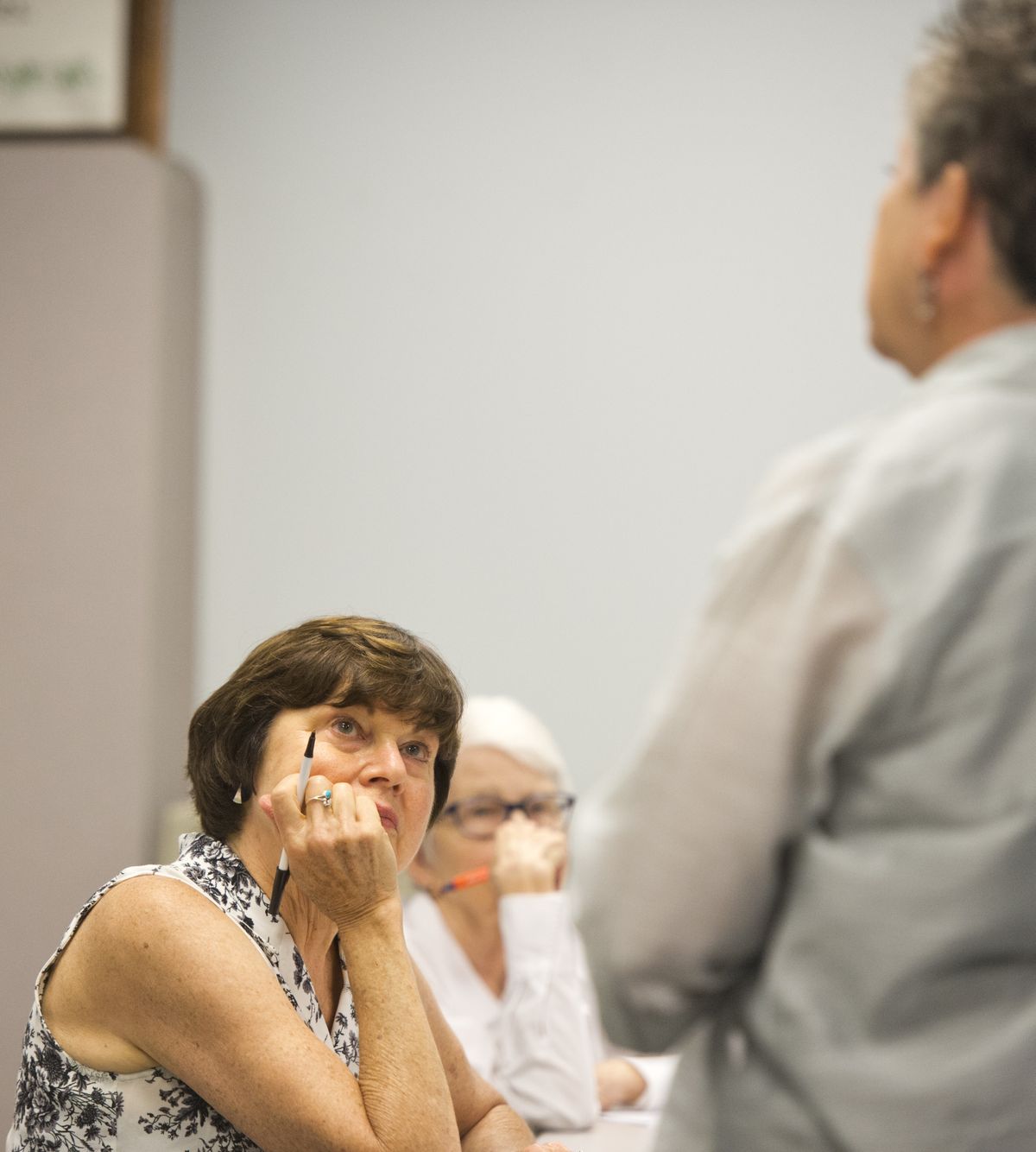Volunteers take on new roles as funding lags for senior services

Volunteers are key to ensuring the region’s aging population, especially low-income seniors and people with disabilities, have the services they need, whether it’s a ride to the doctor, help deciphering Medicare, meals, or advocacy.
As officials finalize the Area Plan on Aging and Long Term Care for the next four years in Spokane, Ferry, Pend Oreille, Stevens and Whitman counties, funding remains stagnant, and could decrease, depending on how much money is allocated by Congress this fall.
Aging and Long Term Care of Eastern Washington expects to have a budget of $12.7 million for 2016. Most of that will go to mandated programs, such as caregiver and Medicaid services. There will be about $2.8 million left for discretionary spending, which is about $12,500 less, or 0.45 percent less than this year. Yet that’s better than 2013, when there was a nearly 5 percent decrease.
There isn’t money left for anything beyond basic human needs, said John Beck, the business and contracts management director for Aging and Long Term Care of Eastern Washington. The goal is to keep the elderly and disabled in their homes as long as safely possible. That means providing meals, adult day care, transportation, bathing assistance and medication management. There isn’t much left for minor home repairs or helping people with chores – which also help keep people in their homes.
“We are just scratching the surface of the needs,” said Beck, adding that the aging baby boom generation is causing a spike in growth.
That’s why he calls volunteers the “real heroes” and he encourages baby boomers to start volunteering because it’s the only way to fill the needs in the region and across the country.
“That’s got to be our growth,” Beck said. “Jump in and help out. Help drive people around or whatever. That’s really how it’s going to have to work because there’s not enough government money coming in to help seniors and the population is exponentially growing.”
Public comment on the four-year plan, which prioritizes services in the five local counties, closed last week after a series of hearings, a community survey and focus groups this spring. An advisory council of 35 volunteers compiled the priority list.
Now the governing board, which includes a county commissioner from each county, two Spokane city council members, an ALTCEW staff member and the chairman of advisory council, will finalize the plan for 2016-19 on Aug. 7.
The top priority for all of the counties is providing coordinated information and referral services based on the “No Wrong Door” approach. That means when someone calls any of the senior programs or ALTCEW or Rural Resources Community Action in the rural counties, they will get connected and their questions answered. It’s the core component of the regional aging services network.
“Older people don’t always know where to start,” reads one comment received during the spring focus groups.
In Spokane County, which receives nearly 68 percent of the discretionary funding, the top priorities are anticipated to remain the same: information and referrals, home-delivered meals, adult day care, bathing assistance, congregate meals and fee-subsidy transportation, medication management and long term care ombudsman, followed by minor home repair.
In the more rural counties, transportation always ranks high. Many of the comments mentioned not only transportation to meals and medical appointments but also for social activities and services for people of all income levels.
“Living 9 miles out of Newport, can there be a bus or person to take my husband to his doctor in North Spokane,” wrote one Pend Oreille county resident.
This tri-county region north of Spokane, which gets 22 percent of the funding, ranks transportation as the second highest priority followed by home-delivered meals.
In Whitman County, which gets 10 percent of the funding, after referrals and information, the top priorities are home-delivered meals, van and volunteer escort transportation, congregate meals and long-term care ombudsman – a program that is always in need of volunteers to advocate for people in nursing homes, adult family homes and assisted living.
In addition to providing a coordinated service system for seniors and people with disabilities, ALTCEW also awards contracts to groups that provide services. In 2016, many of the core services go to bid: family caregiver support services and kinship caregiver programs, along with Title XIX Medicaid case management, and the referral and information service known as Community Living Connection.
“There’s a lot that’s important,” Beck said.